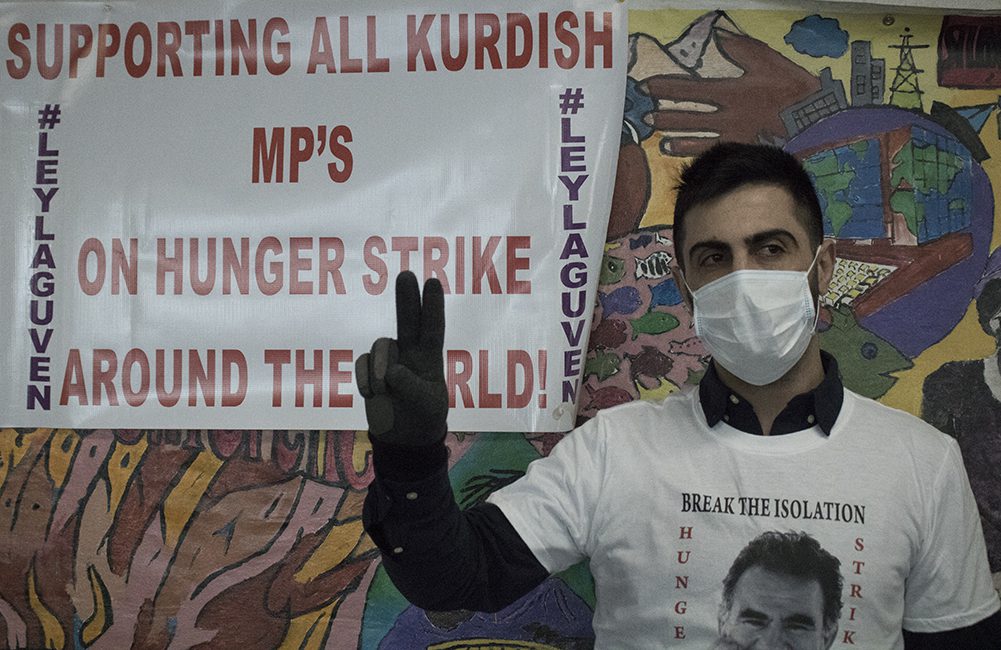Activists, academics, and members of Toronto’s Kurdish community gathered in an office at Ontario’s Institute for Studies in Education to write letters of solidarity to Kurdish political prisoners in Turkey.
The letter-writing campaign on Sunday, Jan. 27 was hosted by Academics For Peace, an organization of Kurdish academics critical of Turkish President Recep Tayyip Erdogan’s policy who have been forced to flee and have been barred from teaching in Turkey.
The letters will be sent to prisons in Turkey.
Amongst those imprisoned are members of parliament, journalists, academics and activists. Children as young as 16 and adults well into their 80s are among those detained.
Gülay Kilicaslan, one of the organizers of the event and a member of Academics for Peace, had her degree stripped and lost her tenure track position at an Istanbul university.
“They have no ethnic rights and are not recognized as Kurds by the Turkish state,” she said about the challenges that Kurds face in Turkey.
Kilicaslan compared the legal plight of Turkey’s Kurds to the situations faced by stateless people around the world, saying, “Stateless people are not visible in the eyes of citizens.”
Another academic at the event, an anthropologist who did not wish to be identified out of fear for his family back in Turkey, spoke about the displacement of Kurds and the destruction of villages within Turkey.
“As a Kurd, I have lived my entire life under a state of emergency.”
On a return visit to a Kurdish village, he saw that seven out of 18 neighbourhoods had been levelled.
“It looked like a scene from Aleppo,” he said.
Also present at the campaign was Kurdish journalist Yusif Iba. Like many of his compatriots, Iba has been on a hunger strike to protest the decades-long imprisonment and isolation of Kurdish leader Abdullah Öcalon on Imrali Island.
When he attended the event, Iba had been on a hunger strike for 15 days. Though the physical effects were clear, Iba still burned with conviction.
“We are doing this for our sanctity and our humanity,” he said.
“We are doing this to stop the bloodshed in the Middle East.”
Iba believes that journalists should not just be journalists for one country but should speak up for oppressed people everywhere.
“When there is a group of people whose voices cannot be heard, it is the responsibility of journalists to be their voice,” he said.
Iba’s strike is indefinite. He says he will not eat until Öcalon and the other political prisoners are released.

